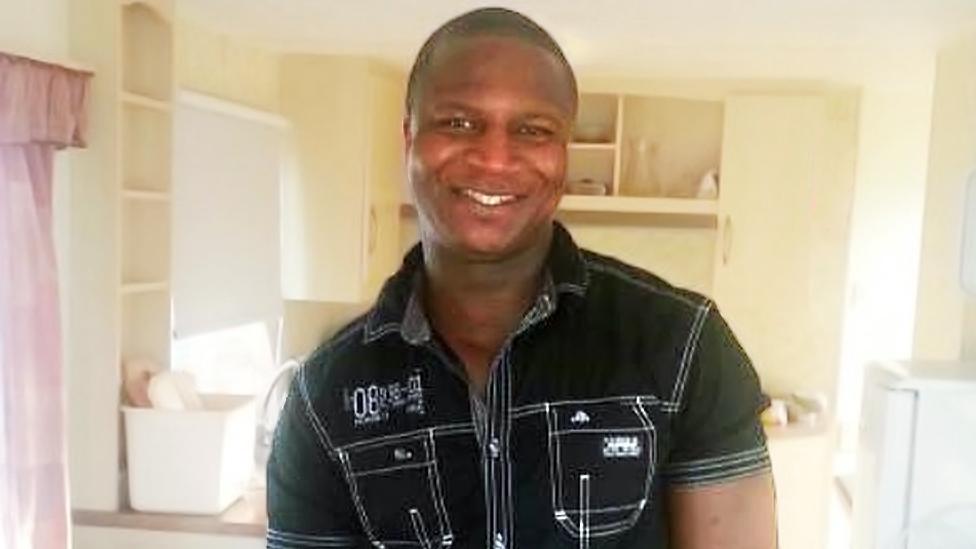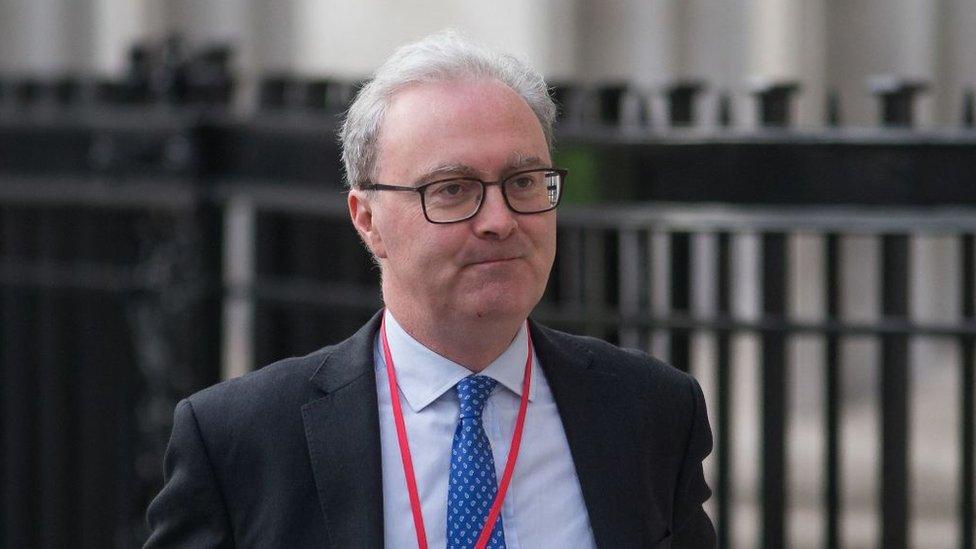Ex-lord advocate's 'deep regret' over Sheku Bayoh case
- Published

Sheku Bayoh was under the influence of drugs and carrying a knife when the police were called by members of the public in Kirkcaldy
A former head of Scotland's prosecution service has expressed his "deep regret" that it lost the confidence of the family of a black man who died in police custody in 2015.
James Wolffe KC was lord advocate when the Crown Office decided no-one should face charges over Sheku Bayoh's death.
He said the Crown had missed an opportunity to investigate whether race had been a factor in the case.
Mr Bayoh lost consciousness after being restrained by six officers in Fife.
The father-of-two was under the influence of drugs, carrying a knife and behaving erratically when members of the public in Kirkcaldy first contacted the police.
By the time officers arrived at the scene, he no longer had the knife but a violent confrontation followed and he later died in hospital.
A public inquiry is examining the circumstances leading up to the 31-year-old's death in May 2015, how it was investigated and whether race had been a factor.
James Wolffe became lord advocate in 2016 and told the inquiry he had been aware that Mr Bayoh's family had not been treated well immediately after his death.
He said when he first met them in February 2017, his intention had been to assure them the Crown was committed to a thorough investigation.
Mr Bayoh's sister Kadi Johnson has told the inquiry she felt Mr Wolffe "had not been interested at all" and there had been a lack of information and engagement.
Mr Wolffe thought it had been "a good meeting."
He said: "I very much regret that that was the view that Ms Johnson formed."

James Wolffe said he had been aware that Mr Bayoh's family had not been treated well immediately after his death.
Sheku Bayoh's former partner Collette Bell has also claimed that Mr Wolffe told her he had brought what happened upon himself.
Asked if he remembered saying anything along those lines, Mr Wolffe replied: "It's fair to say I've got very little specific recollection of that meeting.
"It's not language I would use, it's not a sentiment I would express."
The former lord advocate said he could have been more proactive in understanding and meeting the needs of the family.
"It's one of the deep regrets that I have reflecting back on this case, that Mr Bayoh's family were left with a lack of confidence in the Crown and what the Crown had been doing."
He added he was "disappointed personally" over the extent to which he had contributed to that lack of confidence.
'Hard decisions'
Mr Wolffe said he had relied on highly experienced prosecutors to carry out the Crown's two-year investigation into the case.
One of the lawyers involved has told the inquiry that because no criminality had been found, she did not go on to consider whether race had been a factor in the actions of the police.
Mr Wolffe said not considering race at all stages of the Crown inquiry had been "a missed opportunity" for which he bore ultimate responsibility.
He added: "It doesn't follow that it could have resulted in a different decision."
Speaking outside the inquiry, the Bayoh family's solicitor Aamer Anwar said: "They hold the former lord advocate ultimately responsible for the betrayal of justice and presiding over a culture of incompetence, denial, secrecy, bias and institutional racism."
In a statement, the Crown Office said that every day its prosecutors "take hard decisions and do so independently, rigorously and in accordance with the evidence."